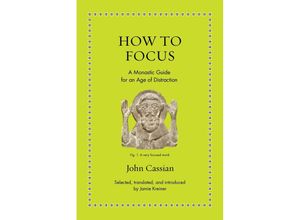A new translation of selections from the 5th century monk John Cassian's writings on ways to
avoid distraction and enhance our concentration. Distraction is not just an artifact of the
digital age and we're not the first to complain about how hard it is to concentrate. Monks in
the late Roman Empire beat us to it. Concentration was their job which made them more aware of
how hard it was to master. John Cassian was a monk who lived in the Roman Empire in the fourth
and early fifth centuries the very early days of monasticism. He was born in the Levant and
joined his first monastery there then spent over twenty years in Egypt interviewing and
learning from ascetic hermits. Eventually he moved to Marseilles to start his own monastery.
He found that the monks in Gaul were hungry for stories of what he'd learned in Egypt and in
the 420s wrote a massive record of his most memorable conversations with the Egyptian ascetics
called the Collationes (or Conferences) in which one of the central preoccupations is the art
of staying focused. While many monks in Cassian's day blamed demons for their cognitive lapses
Cassian was more convinced that distraction was largely a self-inflicted problem of minds
driven by random impulses that could be fixed (or at least mitigated) by disciplining the mind
itself. A large portion of his Collationes is dedicated to helping monks accomplish this and
his thoughts about thinking influenced centuries of monks. Many of Cassian's techniques to stay
focused became signature elements of the emerging Christian monasticism: renouncing property
and family avoiding sex eating sparingly. These were all strategies to minimize the things
that didn't matter in order to stretch the mind out to God. But he also recommended forms of
mental discipline that are accessible today even to the non-monks among us. In this addition
to our Ancient Wisdom for Modern Readers (AWMR) series historian of late antiquity Jamie
Kreiner selects and focuses on (no pun intended) those portions of Cassian's work that can help
us poor overloaded overstimulated moderns cope with our inability to concentrate--

